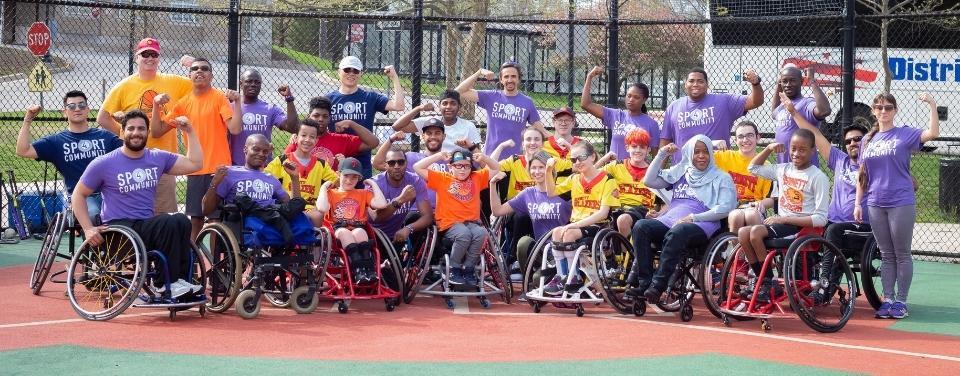Starting in March, the Center for Sport, Peace, and Society (CSPS) at the University of Tennessee, Knoxville, will lead its global diplomacy initiative to promote inclusion for people with disabilities. The CSPS will welcome 12 international sports leaders from 11 countries to participate in a virtual Sport for Community exchange program, part of the larger U.S. Department of State Global Sports Mentoring Program (GSMP) for which the center has served as the sole implementing partner since the initiative’s inception in 2012.
The theme of the 2022 GSMP is “Leading in Times of Crisis.” International delegates will participate in virtual opening and closing week activities, a virtual mentorship, complete one asynchronous GSMP-University course focused on leadership development, and create a multimedia final project outlining strategic plans for applying key take-a-ways from the program. All aspects of the GSMP will focus on equipping sports leaders with the skills, knowledge, and resources they need to create strategies aimed at long-term positive change in their home countries, specifically aimed at advancing disability rights and inclusion in the sports industry.
International delegates, nominated by U.S. embassies in their respective countries, will participate in a four-week virtual program working closely with the CSPS, the U.S. Department of State, and mentors from the country’s top sports sector organizations, including the U.S. Tennis Association, Special Olympics Maryland, National Ability Center, and the Universities of Arizona and Texas-Arlington.
Delegates spend their first week working through the CSPS “Better World” curriculum with the CSPS team of educators, researchers, and journalists who lead sessions on sport for social change, empowerment, and partnership development. The delegates will also begin developing business plans for creating and sustaining initiatives focused on sport for social change in their local communities.
The delegates then move on to the virtual mentorship component of the program where they will be mentored for two weeks by executive level leaders and adaptive recreation/sports specialists from prominent sports organizations. Delegates will develop business skills and refine their strategic plans for social impact. At the end of the program, delegates will present their multimedia final projects and receive feedback and support from program mentors, partners, and sports sector stakeholders.
The CSPS has implemented the Sport for Community exchange program since 2016. For the first time this year, representatives from Bosnia & Herzegovina and Croatia are participating in the program.
For its success in promoting disability rights in and through sports, the GSMP received the Peace & Sport: Best Diplomatic Action of the Year award in 2018.
This 5th cohort of delegates includes women and men ages 25-50 from Belgium, Bosnia & Herzegovina, China, Croatia, Georgia, Hungary, Nepal, Nigeria, Saudi Arabia, Thailand, and Zambia.
Mentor organizations for the 2022 Sport for Community GSMP include Ability360, Arts for All, Inc., Chicago Park District, Mesa Parks, Recreation, and Community Facilities, Shirley Ryan Ability Lab, the Spaulding Rehabilitation Network, Special Olympics Maryland, TIRR Memorial Hermann, Turnstone Center, the University of Arizona, the University of Texas at Arlington, and the U.S. Tennis Association.
The program will begin on March 7 and will conclude on April 1. To follow along on social media, join us on Facebook, Twitter, and Instagram and join the conversation using #Sport4Community and #wethe15.
